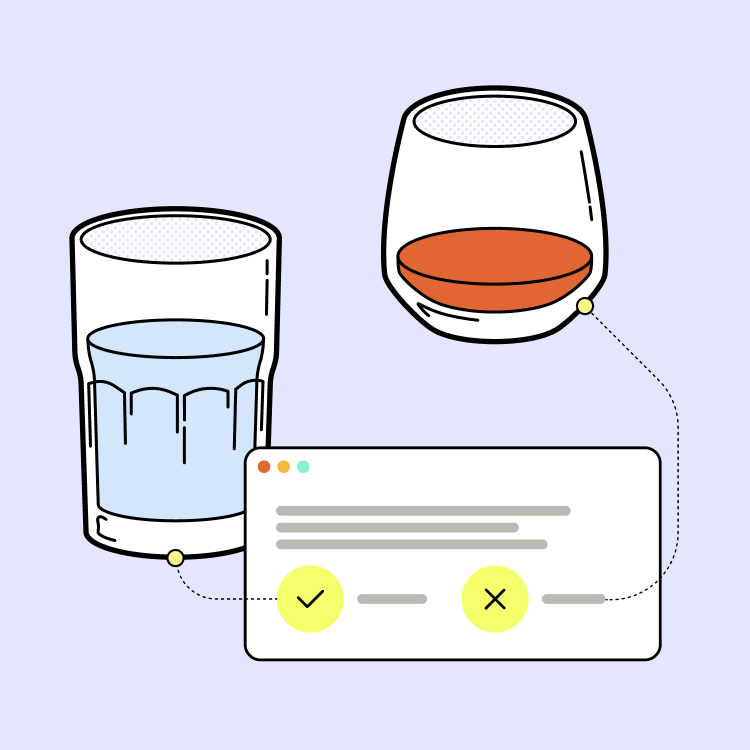If your drinking is causing you concern, or you’re worried about someone else’s drinking, it may be time to seek advice.
The first step is determining whether you might be at risk of a drinking problem and, if so, how severe it is. Reliable tools are available to guide you, including the Alcohol Use Disorders Identification Test, or AUDIT, developed by the World Health Organization (1). It is a brief assessment widely used by health practitioners around the world. It can help identify whether you are at risk and next steps in getting help.
The Drinking Self-Assessment Test offered here is based on the AUDIT. It reflects WHO’s original screening questions and scoring. This self-assessment test distinguishes three categories– “low-risk”, “risky”, and “problem” drinking, based on the AUDIT score:
- “Low-risk” drinking (AUDIT score 0 - 6 for women, 0 - 7 for men): You are likely to be at low risk of developing alcohol problems. It is important not to increase your drinking from the present level. Doing so will raise your risk of alcohol problems and can harm your health.
- “Risky” drinking (AUDIT score 7 - 19 for women, 8 - 19 for men): Based on your score, your drinking places you at risk of alcohol problems and can harm your health. Please follow up with a health professional to confirm this result and to address any concerns and the best intervention for you.
- “Problem” drinking (AUDIT score 20+ for women and men): Based on your score, your drinking is problematic and increases your risk of health and personal harm. You are also likely at risk of alcohol use disorders (AUD) or dependence. Please consult a qualified health professional to determine the severity of the problem. AUD and dependence are treatable, and an expert can advise you about the treatment options that are best for you.
Whatever your score on the Drinking Self-Assessment Test, only a qualified professional can assess your particular case and the severity of your risk. We encourage you to follow up with a health expert who can re-administer the test to confirm the results and advise you about the intervention or treatment options most appropriate for you.
The following resources are relevant to anyone based in Kenya or Tanzania.






